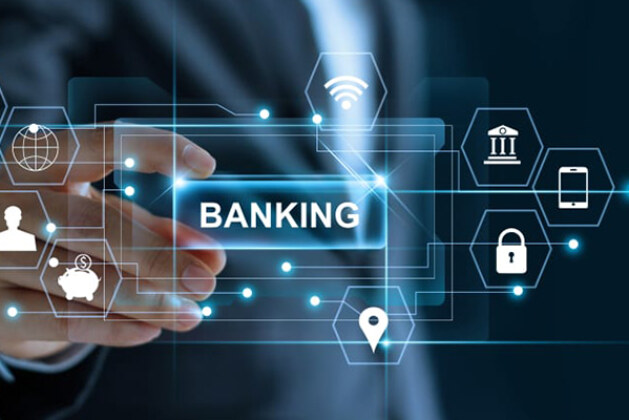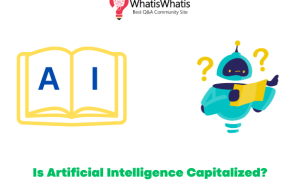The banking and financial sector has been deemed sluggish in adopting modern technologies in the past, especially in comparison with other industries, but that is not the case today. The financial industry is more than making up for its purported slowness by incorporating some of the most advanced technologies.
Know more: Advantages of SBI Kiosk banking Financial Services Online
Corporations are letting go of their conventional financial practices, bringing in innovation and agility to the fore. Financial technology (or FinTech) is one of the fastest-growing markets today.
- According to the latest report by the business research company, the global Fintech market grew at a compound annual growth rate (CAGR) of 7.9% after 2015 to reach a value of about $111.24 billion in 2019. The market is further expected to achieve a value of $158 billion by 2023, at a CAGR of 9.2%.
- The entry of tech giants such as Apple, Google, Facebook, and Amazon into the financial services is believed to be the major driving force behind the growth of the Financial Technology market.
Most of the financial institutions believe that financial technology has changed how they offer services, on a fundamental level. This transformation is also reinitiating the industry’s global competitive landscape.
Here are the major Technologies Shaping the Future of Finance:
Artificial Intelligence
Artificial Intelligence has provided terrific assistance to financial institutions, enabling them to meet the ever-increasing customer expectations and coping up with the global competition.
The numerous benefits AI brings to the banking and financial sector include product delivery, back-office activities, customer experience, compliance, and risk management, among others.
See more: artificial Intelligence is Benefiting Small Businesses
- AI helps businesses automate simple tasks.
- Handles complex thinking assignments.
- Helps customizing product designs.
- Develops predictive analysis for decision-makers to take improved decisions.
A PricewaterhouseCooper study reveals that about 52 percent of executives are already investing significantly in Artificial Intelligence, whereas 72 percent of them trust AI to be beneficial to their business.
Cloud Computing
Cloud computing delivers databases, servers, networking, software, and other computing services via the internet. It helps individuals and organizations store all their data on the cloud on a pay-as-you-go basis.
Learn more: Why Businesses Should Switch to Cloud-Based Applications?
It is one of the most eminent technologies of the 21st century. Some of the benefits of cloud computing are:
- Seamless, 24/7 customer services
- Enhanced agility of the banking and financial institutions
- Easy and quick option to scale up operations and services
- Security of online payments and digital wallets
- A hybrid cloud offers great flexibility and helps financial organizations address compliance, governance, and data security.
- QuickBooks cloud hosting and other such cloud-based services have made accounting and taxing easier and cost-effective.
The modern, tech-savvy generation of customers likes to shop, order food, pay bills, book a show, without looking at the clock.
Cloud computing has enabled banks and other financial institutions to deliver such instant, on-demand services securely.
It is one of the reasons why cloud computing is one of the few technologies that the financial sector has huge expectations.
Robotic Process Automation
Robotic Process Automation (RPA) has been a great influencer in the financial sector because of its ability to automate data-intensive, laborious, and repetitive tasks.
Its software-based process offers significant accuracy compared to human employees. Few other advantages of RPA are:
- Customer queries with low-priority can be dealt with easily, reserving customer agents for high-priority issues
- Handling insurance claim processes for insurance companies
- Optimized mortgage processing
- Ultra-fast response to the credit card or loan applications
- Future-proof because of its intuitiveness and re-configurable software
RPA, with expectations of bringing in more comprehensive services in near future, is estimated to reach a global market value of $12 billion by 2023, says Forbes.
Know more: Artificial Intelligence: In Search of ‘robo Sapiens’
Blockchain
Blockchain is a decentralized, transparent, and immutable ledger that uses distributed databases and cryptography to record financial transactions. With its ability to aid banking and finance in various ways, it has the potential to become the backbone of the sharing economy. The blockchain proffers many benefits including but not limited to:
- Reduced costs
- Enhanced security of business transactions
- Quicker transactions
- Removal of physical data reconciliation
- Reformed data quality
According to a report by the Harvard Business Review, blockchain is going to disrupt the banking and financial institutions in the same way as the media was disrupted by the internet.
The report further estimates blockchain to help the financial sector save about $15-20 billion by 2022, in the form of infrastructure costs alone.
See more: How blockchain Technology Can Solve IoT’s Security Problem
Chatbots
The latest, AI-based chatbots have become more admired and sophisticated than ever. They offer excellent customer experience while saving a lot of human efforts at the same time.
They are continuously evolving, helping customers connect with banks and financial companies on their own terms. It has numerous advantages over typical communication methods like texting, emailing, and phone calls. Some of these advantages are:
- Reduced costs
- Improved customer satisfaction through instant response
- Effectual issue resolution
As per Gartner, by the end of 2020, more than 85 percent of the customer interactions will be handled by chatbots.
Must know: How Does chatbot Software Can Automate Your Work?
Big Data and Analytics
The banking and financial industry generates large amounts of data. This data is extremely crucial for organizations framing new policies and taking effective decisions, going forward.
That is when big data comes to the fore. It offers the following benefits to the financial sector for generating great business value:
- Provides actionable insights for improved decision making
- Fraud detection and risk management
- An insightful study of customers’ financial habits for greater customer satisfaction and future-proof product development
- Indicates market trends for businesses to help them stay ahead of their competitors
The IDC Semiannual Big Data and Analytics Spending Guide recognizes the banking and financial industry as one of the biggest industry-wise investors in big data and business analytics solutions.
Cyber Security
The financial industry has huge sensitive, financial data that makes it an irresistible target for cyber-attacks. The present-day customers use various applications and platforms for their financial transactions, which further increases the vulnerability of the data.
It is very important for the financial institutions to safeguard the consumer data from these ever-increasing threats. Live data monitoring, artificial intelligence, and other advanced analytical tools are put to work for detecting and neutralizing potential risks.
The following measures help organizations negate the arising cyber threats:
- Working closely with the government agencies as well as other industry participants while sharing knowledge that helps to curb security threats
- Making employees aware of the potential risks and all the protocols to be followed
- Introducing security awareness programs for individual users
At the end of the day, the finance industry has a lot to look forward to, in terms of contemporary, emerging technologies, in the coming future. While the industry incorporates these technologies to its advantage, it is equally important for it to be proactive about data security, keeping a close eye on the transpiring risks.






Leave a comment